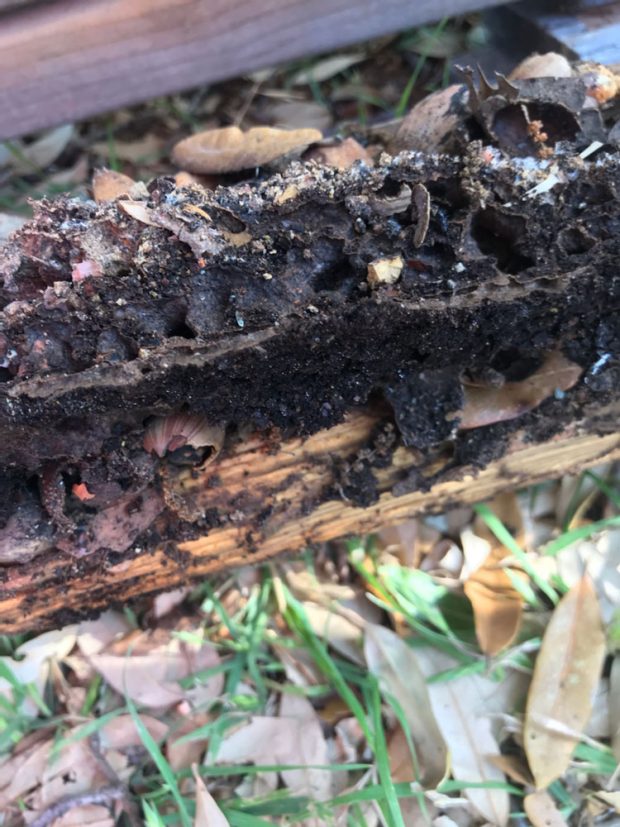When it comes to protecting your home, the place where your family gathers, prays, and builds memories, few threats are as sneaky and destructive as termites. Scheduling a termite inspection on a regular basis is one of the wisest investments you can make as a homeowner. These tiny pests can cause thousands of dollars in damage before you even realize they’re present. By being proactive, you’re not just saving money—you’re stewarding the blessings God has entrusted to you.
Recommended Frequency for Termite Inspection
The right frequency for termite inspections depends on your home’s location, climate, and construction. However, industry experts generally recommend scheduling a professional termite inspection at least once per year.
Why yearly? Because termites are masters of silent destruction. A colony can eat through wood, flooring, and even wallpaper for months without drawing attention. A yearly inspection ensures that a licensed professional is keeping watch and catching any early warning signs.
Annual vs. Biannual Inspection Pros and Cons
- Annual Inspections (Once Per Year)
- Pros: Cost-effective, sufficient for most climates, provides regular peace of mind.
- Cons: In high-risk areas (warm, humid climates), damage may begin in the months between visits.
- Biannual Inspections (Twice Per Year)
- Pros: Ideal for homes in termite-prone regions, older homes, or properties with a history of infestation. Helps ensure no colony has time to gain traction.
- Cons: Slightly higher cost, though far less expensive than repairing structural termite damage.
Rule of Thumb: If you live in a warm, humid area like Texas or Florida—or in an older home with wood construction—biannual inspections may be the safer choice. If you live in a cooler or drier area, annual inspections may be sufficient.
What Happens During a Professional Termite Inspection
Scheduling a professional termite inspection isn’t just about peace of mind; it’s about inviting an expert to look where you can’t. Licensed inspectors are trained to spot subtle signs of termites, identify risk factors, and suggest preventive measures.
Here’s what typically happens during an inspection:
- Exterior Check: Inspectors examine the outside of your home, checking for mud tubes along foundations, wood-to-soil contact, and damaged siding.
- Interior Inspection: They’ll look at baseboards, crawl spaces, attics, and any areas with moisture problems. Termites are drawn to damp environments.
- Moisture Assessment: Using meters, inspectors check for excess moisture that could attract termites.
- Damage Detection: They tap wood to listen for hollow spots and look for blistering paint or buckling floors.
- Documentation & Recommendations: You’ll receive a report detailing findings and next steps, whether that means treatment or preventive measures.
Setting Up Your Home for an Inspector’s Visit
To make the inspection as thorough and efficient as possible, prepare your home ahead of time:
- Clear clutter away from walls and foundations.
- Unlock access to basements, crawlspaces, and attics.
- Trim plants and bushes away from the home’s perimeter.
- Move stored items away from garage walls.
This small effort allows the inspector to do a more complete job, ensuring your family’s home is well-protected.
DIY Signs You Need an Immediate Inspection
While professional inspections should be scheduled regularly, there are times when you shouldn’t wait for your next appointment. Homeowners can keep watch for common warning signs of termites.
Common Entry Points and Structural Weaknesses
- Mud Tubes: Pencil-sized tunnels running along your foundation or walls.
- Hollow Wood: Knock on beams or trim—if it sounds hollow, termites may be inside.
- Discarded Wings: Termite swarmers shed their wings near windowsills or doorways.
- Buckling Floors or Bubbling Paint: Termites damage wood beneath the surface, which can make floors warp and paint blister.
- Frass (Droppings): Drywood termites leave behind small piles of what looks like sawdust.
If you notice even one of these signs, don’t delay—schedule an inspection right away. The sooner termites are detected, the less damage they can cause.
Why Regular Inspections Matter
Termite damage isn’t usually covered by homeowner’s insurance because it’s considered preventable. That means one undetected infestation can cost you tens of thousands of dollars in repairs—repairs that you’ll pay for out of pocket.
But beyond the financial impact, termites threaten the safety and security of your home. Wooden beams, floors, and supports can weaken without you realizing it, creating risks for your family. By keeping up with regular inspections, you’re protecting both your finances and your loved ones.
Scripture reminds us in Proverbs 27:12: “The prudent see danger and take refuge, but the simple keep going and pay the penalty.” Regular termite inspections are a prudent, faithful step toward guarding the refuge God has given you in your home.
The Balance Between DIY and Professional Help
While it’s wise to keep an eye out for visible warning signs, only a trained professional has the tools and experience to detect termites early. DIY checks are helpful in between inspections, but they should never replace a scheduled professional visit.
Think of it this way: You can check your car’s oil or tire pressure yourself, but you still take it to a mechanic for a thorough inspection. The same principle applies here—professional termite inspectors can identify risks you might overlook.
Choosing the Right Pest Control Partner
When choosing a termite inspector, experience and trustworthiness matter. Look for:
- A company with a long-standing reputation in your community.
- Licensed, insured professionals.
- Transparent pricing and honest recommendations.
- A team that treats you like family, not just another job.
That’s why Affordable Pest Control has been the go-to choice in the Greater Midland area for over 30 years. Our dedication to quality work at fair, affordable rates has helped countless families protect their homes and their budgets.
Final Thoughts
Scheduling a termite inspection is more than a maintenance task—it’s a step of stewardship and wisdom. By inviting professionals to safeguard your home each year (or twice a year in high-risk areas), you protect your investment, your family’s safety, and the peace of mind that comes from knowing your home is secure.
Stay alert for DIY warning signs in between inspections, prepare your home for your inspector’s visit, and don’t hesitate to act quickly if you spot suspicious activity.
Contact Us Today
Don’t wait until the damage is already done. Call us today, your go-to, full-service pest control company. For over 30 years, we’ve been proudly serving the Greater Midland area with top-quality extermination work at rates that families can afford. Let us help you protect your home with dependable termite inspections and treatments, so you can focus on what matters most, building a safe, faith-filled life with the people you love.

